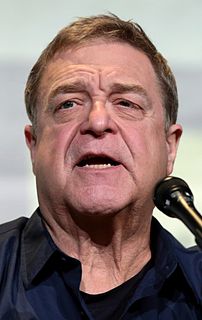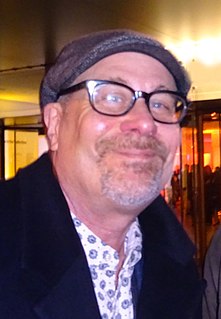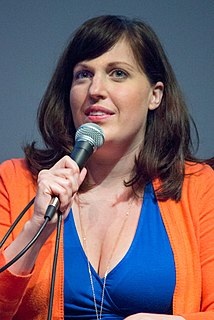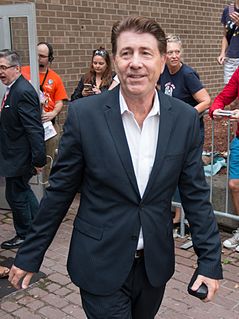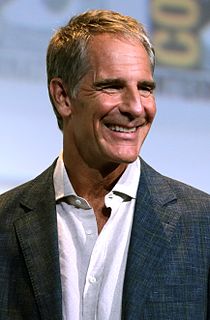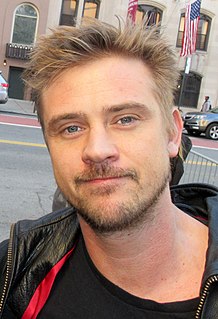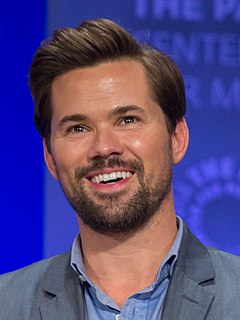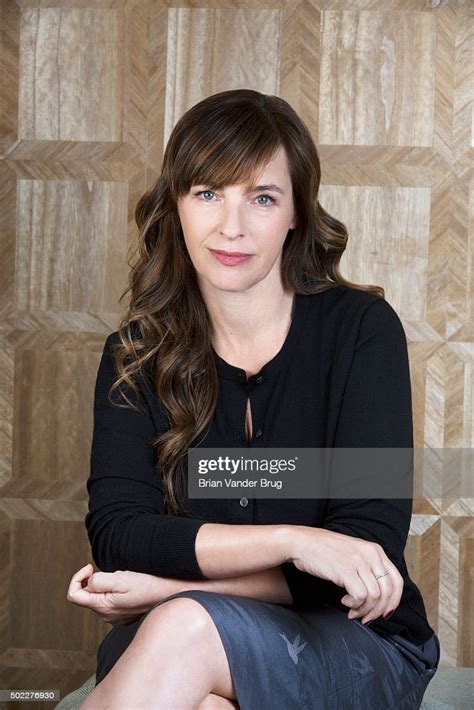A Quote by Philip Glass
I've been working in theater, really, since about 1965. I started working with the Mabou Mines about then, and in a way I've always worked in the theater, but it's never been a main part of my work. And it wasn't until Einstein that I kind of shifted into high gear with theater, working with Bob, with Bob Wilson. And since then I find it a very attractive form to work in. It's just an extension of my work.
Related Quotes
I have to work hard and wear pants. I've worked really hard these last years, and since everything is coming together at the same time, I had to move the play back. I'm kind of in love with my theater agent. I'm a true naïve about the theater, a total innocent. He says to me, have you ever been to a rehearsal room? Do you realize you are opening at the Public in New York? You do understand that the audience will be New York theater people?
I want to keep working. I want to step away from young adult fiction. I want to do theater periodically - Farragut North reminded me how great it is. I started out in theater. I trained in theater and then I kind of fell into film and TV. I want to work with interesting artists, talented actors, talented directors, and talented scripts. Not necessarily leading roles.
I ain't never been in no college with famous people. I was a drifter for a while. I just was desperate to fit in with a group. Really, I was swimming. I was lost, treading water, trying to find my way. I wanted to play football. It didn't work out. I didn't really know what I wanted until I found acting in a theater department, and then everything just fell into place, and I had a passion about something. Then, I started living my life.
With me, growing up in a theater family and having them be so supportive, from the jump, and being a part of this theater community where the brass ring is working, wherever that is, and then to play a character where he's not really concerned with that and is really just concerned with the monetary aspect of the job, and then to be identified with someone who is the antithesis of your energy and where you come from, has been a very interesting and surreal ride.
Chicago theater vs. New York theater. There's just nothing to say about it really. If you've seen Chicago theater, you know that the work is true to what is there on the page. It's not trying to present itself with some sort of flashy, concept-based thing. It's about the work, and it's about the acting you're about to watch. So acting-based theater feels like it was born there to me.
The thing about theater that always and still kind of makes me edgy is that you work and work and work and work, and then you're just in performance mode, and then you have to just be on; the work is done, and then you just have to do it over and over again, so you're just constantly at that performance level.
I did always want to write. And then, when I left New York, where I was working very steadily in the theater - I had done three Broadway shows in a row and was a bit burnt out - I moved out to L.A. and I was not working very much. I came in cold and I'd work for a week, but then I'd have a month or two off. I thought, "I'm going to go crazy unless I actually do write." Like a lot of things in life, it was a situation that came about by circumstances.
There have been screenwriters who I'm sure would gladly kill me, because I've been very fast and loose with their work, because I felt like it wasn't up to my high standards. I would push and pull it on set, and make changes all the time. But then when you're working with an original screenplay, my theater instincts kick in, and I suddenly become very keeper-of-the-words.
As a kid, I was fortunate that we grew up near a children's theater, with all different classes and things; so as a kid I took classes there and as I got into high school I did all the community theater stuff. Then I came to college here in New York, going to Marymount Manhattan, and studied acting there. But most of the training I got was from working. Working with really great people.




